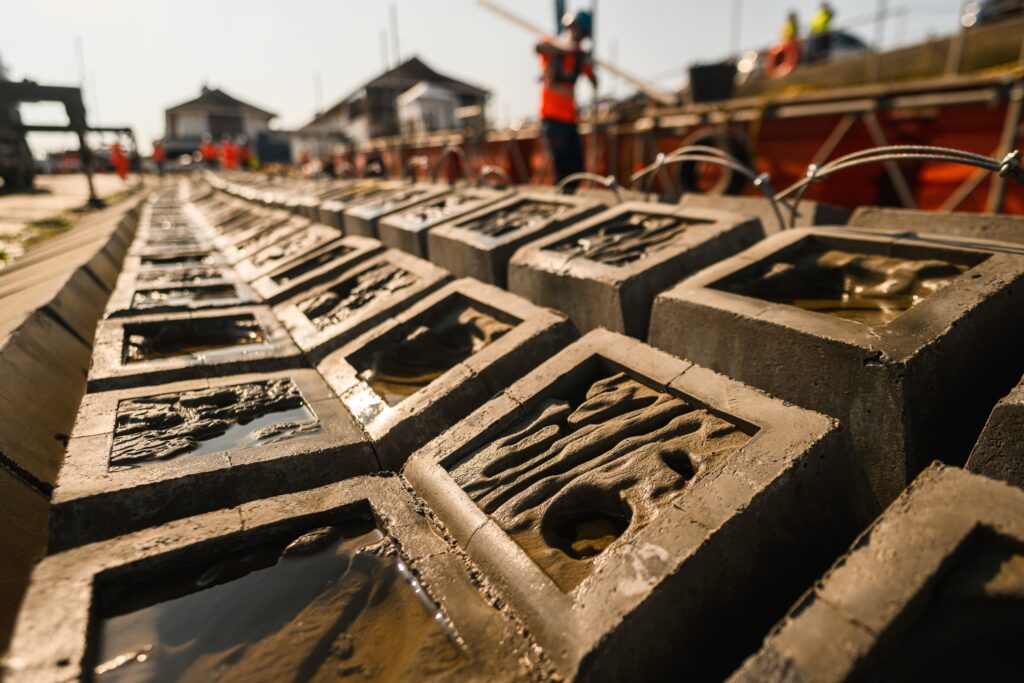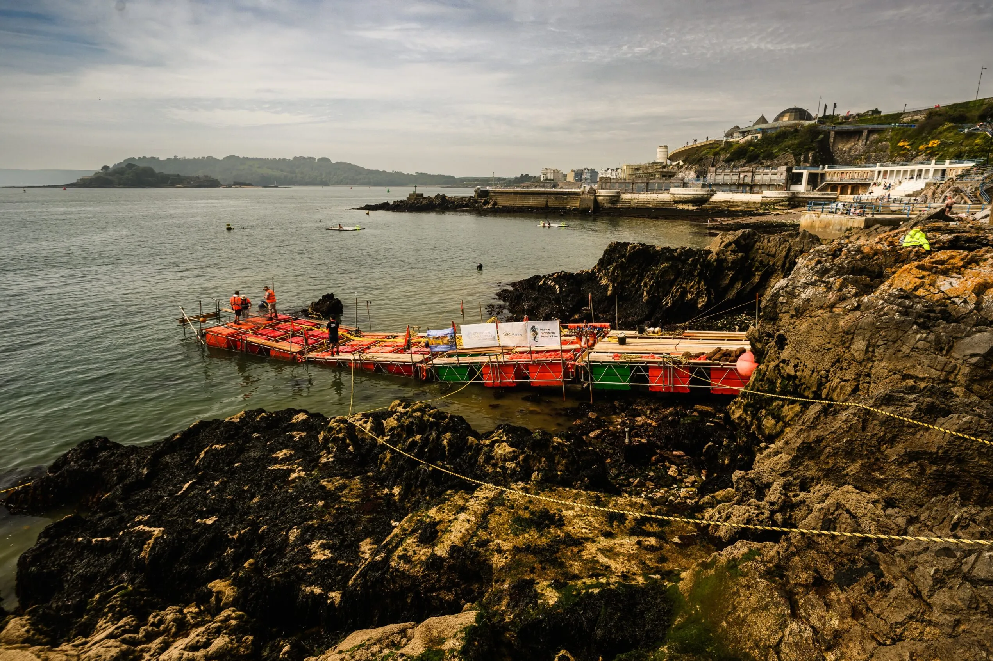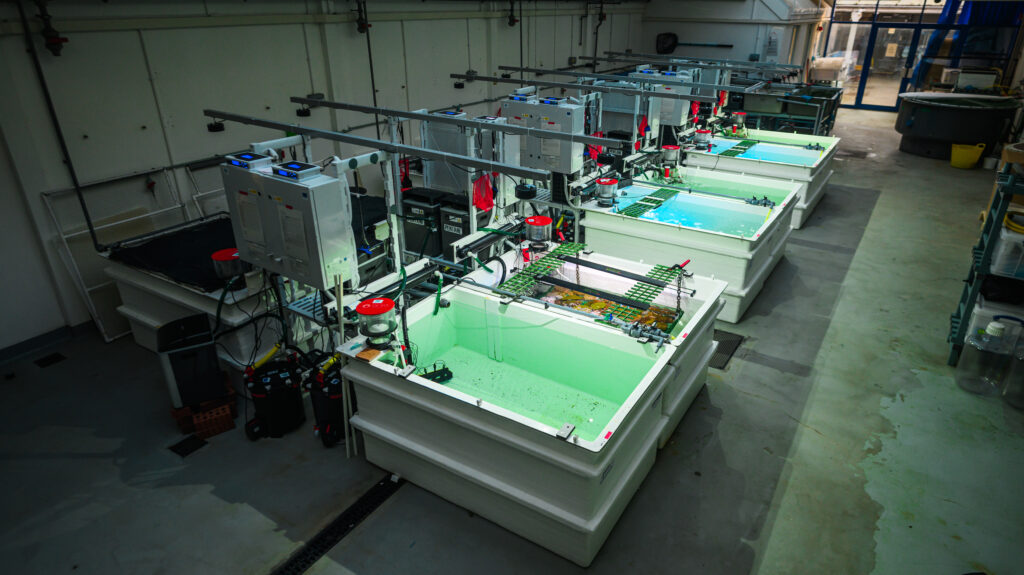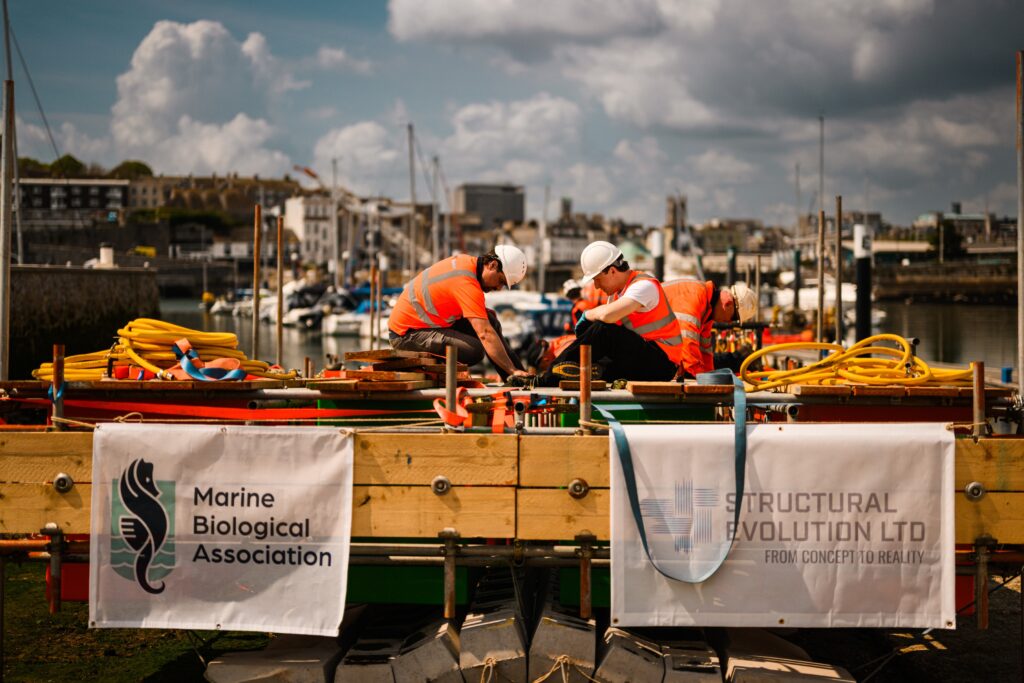
We are pleased to announce the successful deployment of the Seawater Life Support, an innovative system that connects the Marine Biological Association’s (MBA) Research Aquarium to the sea.
The new 27- metre-long intake line which has a lifespan of up to 30 years, is a sustainable and environmentally friendly solution for supporting marine life in Plymouth Sound; and will provide a vital channel of seawater to the MBA Research Aquarium.
The design and deployment of the system involved meticulous planning and collaboration between expert technicians and engineers Structural Evolution Ltd, ARC Marine, ScaffFloat, WHScott & Son Engineers and Seawide Services, who have over 100 years of collective experience.
The collaboration and team effort of the local partners guaranteed low impact and cost-effective deployment and installation procedures. The entire project and even raw materials were supplied and delivered within 70 miles of Plymouth.
The project team adopted a low carbon approach using ScaffFloat barges and local installation site, therefore avoiding standard installation methods which would rely on heavy machinery and costly processes.
The new intake line has been covered with Marine Matts, a unique structural material developed by ARC Marine. The Matts, which are made from carbon-neutral concrete alternative called Marine Crete, have been designed with a texture and surface that can support and replenish biodiversity of local marine life whilst providing durability and protection for the intake line.


Assembly took place at Queen Anne’s Battery and the structure was transported and installed during low tide at a near shore location at Plymouth Sound.
The MBA Research Aquarium provides specialised facilities for both MBA researchers, collaborators and external organisations to carry out critical marine biology research.
MBA Chief Executive Professor Willie Wilson said: “The successful installation of the Seawater Life Support system underscores our dedication to providing state-of-the-art, environmentally sustainable resources that will support our Research Aquarium.
The implementation of this new water intake line marks a pivotal moment in our research efforts, and we are immensely grateful for the support and expertise of our partners whose hard work and dedication to the project made it possible.”

Casper Kruger, MD for Structural Evolution said:
“We are very excited about the successful completion of the Seawater Life Support Project. It has been a remarkable journey managing and overseeing this endeavour from concept to reality. Over two years in the making, this project required an innovative deployment strategy due to its complex near shore location, where local collaboration with key partners ensured its success. Structural Evolution is proud to have played a pivotal role in bringing this vision to life and we are grateful to all the collaborators for their dedication to this ambitious project.”
Tom Birbeck, CEO & Founder of ARC Marine said:
“We’re thrilled to have contributed to the installation of the MBA’s new aquarium intake line, where our protection not only shields it but also fosters a thriving marine ecosystem in the surrounding area. At ARC Marine, our sustainable, nature-inclusive designs are grounded in science, which is why we’re delighted to be part of projects like these. We hope this initiative will serve as a roadmap for aquariums worldwide.”

Following the installation, the University of Plymouth will re-instate an improved ‘Plymouth Underwater Teaching Observatory’ (PLUTO-2) camera and sensor system on the intake structure. This publicly available live streamed video footage will give scientists, students, and dedicated viewers the unique opportunity to observe marine life in the vicinity of the new intake, whilst also archiving data for future projects.